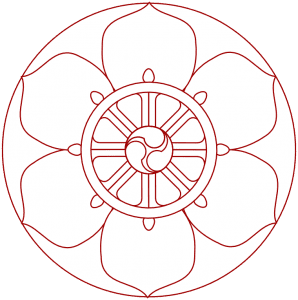

Formy meditace
Naše tradice má tři hlavní formy: poklony, zpěvy a meditace vsedě. Nejdůležitější je bez ohledu na to, co děláte, dělat právě to.
Když děláme poklony, jen se klaníme, když zpíváme, děláme právě to.
Když sedíme, jen sedíme.
To je vše.
Proč se klaníme
Zenový mistr Dae Bong
Praxe poklon nám pomáhá rychle propojit tělo a mysl. Také je to výborný způsob, jak odstranit línou mysl, touhu a hněv.
Když spíme, naše tělo leží v posteli, mysl si však někde poletuje a cestuje. Možná je v Las Vegas nebo někde u moře nebo v New Yorku anebo nás honí nějaká příšera. Tělo leží v posteli, ale vědomí je někde jinde. A ráno se vzbudíme a našemu tělu a vědomí pak často trvá dlouho, než se znovu propojí. A my mezitím bloumáme po domě, popíjíme kávu, narážíme do věcí… až se nakonec – velmi pomalu – naše vědomí a tělo opět spojí.
Proto úplně první věcí, kterou ráno děláme, je 108 poklon. Díky nim se tělo a mysl rychle propojí a my můžeme jasně fungovat.
Poklon děláme pokaždé 108. Toto číslo vychází z hinduismu a buddhismu. Říká se, že v mysli existuje sto osm poskvrnění, nebo se také někdy mluví o sto osmi přihrádkách. Každá poklona jedno z těchto poskvrnění odstraňuje – čistí jednu přihrádku naší mysli. Praxe poklon je tedy vlastně takovým každodenním ranním rituálem lítosti. Ve spánku i během dne naše vědomí často někam odletí a také ve své mysli neustále něco vytváříme. Proto pak děláme 108 poklon a tím vyjadřujeme svou lítost nad vším tím pošetilým přemýšlením a zbavujeme se jej.
Někteří lidé nemohou meditovat vsedě. Buď mají zdravotní problémy, nebo příliš přemýšlejí, a když si pak sednou, nedokážou mít své vědomí pod kontrolou. V takových případech je právě praxe poklon a práce s tělem tímto způsobem skvělá.
Velice důležitý je také směr naší praxe. Klaním se, protože chci odložit své malé já, spatřit svou pravou přirozenost a pomoci všem bytostem. Našemu tělu a mysli může k propojení posloužit v podstatě jakékoli cvičení, nicméně když cvičíme, nemíváme vždycky úplně jasný směr. Někdy cvičíme pro své zdraví, jindy proto, abychom dobře vypadali, a jindy zas, abychom vyhráli nějakou soutěž. V buddhismu však všechno míří do stejného bodu – vnímat svou pravou přirozenost a vysvobodit všechny bytosti z utrpení.
Praxe poklon odstraňuje naši karmickou mysl, naši přemýšlející mysl, a pomáhá nám vrátit se s jasností do tohoto okamžiku, najít svou pravou přirozenost a zachránit všechny bytosti. Proto je praxe poklon tak důležitá. Je-li někdo plný hněvu či touhy, nebo když má línou mysl, měl by každý den dělat 300, 500, nebo i 1000 poklon. Takový člověk pak bude mít velmi silné centrum, bude mít svou karmu pod kontrolou, dokáže ji odstranit a projasnit se. To pomůže jemu samotnému a pomůže to i tomuto světu.
Proč zpíváme
od Zenového mistra Seung Sahna
Jednou v neděli večer po řeči dharmy v Mezinárodním zenovém centru v New Yorku se student zeptal Seung Sahn Soen-sa:
„Proč zpíváte? Není meditace vsedě dostačující? “
Soen-sa řekl:
„To je velmi důležitá záležitost. V zenovém centru se společně klaníme, společně zpíváme, chodíme spolu, sedíme spolu a děláme spolu spoustu dalších věcí. Proč společně cvičíme?
Každý má jinou karmu. Takže všichni lidé mají odlišné situace, různé podmínky a různé názory. Jedna osoba je mnich, druhá je studentem, jiný pracuje v továrně; jeden člověk vždy udržuje jasnou mysl, jiný je často znepokojen nebo nespokojený; někdo má rád ženské hnutí, jiný ne. Ale každý si myslí: „Můj názor je správný!“ Dokonce i zenoví mistři jsou takoví. Deset zenových mistrů bude mít deset různých způsobů výuky a každý zenový mistr si bude myslet, že jeho cesta je nejlepší.
Američané mají americký názor, Orientálci mají orientální názor. Různá stanoviska vedou k různým činnostem, které vytvářejí odlišnou karmu. Takže když se držíte svých názorů, je velmi obtížné ovládat svou karmu a váš život bude i nadále obtížný. Vaše špatné názory pokračují, takže vaše špatná karma pokračuje. Ale v našich zenových centrech žijeme společně a praktikujeme spolu a všichni dodržujeme chrámová pravidla. Lidé k nám přijíždějí s mnoha silnými názory a postupně je odloží. Všichni společně se v 5:30 ráno 108x klaníme, všichni sedíme spolu, všichni jíme společně, všichni pracujeme společně. Někdy se vám nechce dělat poklony, ale jsou tady chrámová pravidla, a tak je děláte. Někdy nechcete zpívat, ale zpíváte. Někdy jste unaveni a nechcete jít meditovat, ale víte, že pokud nepřijdete, lidé se budou divit, proč jste nepřišli.
„Když jíme, jíme v rituálním stylu se čtyřmi mísami a po skončení jídla vymyjeme misky čajem a pomocí ukazováčku je vyčistíme. Zpočátku se tento způsob nikomu nelíbil. Jeden člověk ze zenového centra v Cambridge přišel velmi rozrušený: „Nemůžu vydržet tento způsob stravování! Čaj je plný zbytků, nemůžu ho vypít!“ Řekl jsem mu: „Znáš Sútru srdce?“ „Ano.“ „Neříká, že věci nejsou ani
špinavé, ani čisté?“ „Ano.“ „Tak proč nemůžeš čaj vypít?“ „Protože je to špinavé.“ (smích diváků) „Proč je to špinavé? Jsou to drobky z jídla, které jsi právě snědl. Pokud si myslíš, že je čaj špinavý, je špinavý. Pokud si myslíš, že je čistý, je čistý.“ „Dobře, budu pít čaj.“ (smích)
Takže žijeme společně a jednáme společně. Společně jednáme tím, že odřízneme své názory a situace, tím vyprázdníme svou mysl. Vrátíme se k bílému papíru. Pak se objeví náš skutečný názor, náš skutečný stav a situace. Když se společně klaníme, zpíváme spolu a jíme společně, naše mysl se stává jednou myslí. Je to jako na moři. Když přijde vítr, je mnoho vln, když se vítr utiší, vlny se zmenší. Když se vítr zastaví, voda se stává zrcadlem, ve kterém se vše odráží – hory, stromy, mraky,… Naše mysl je stejná. Když máme mnoho tužeb a mnoho názorů, existuje mnoho velkých vln. Společnou praxí se po nějaké době naše názory a touhy utiší a vlny se zmenšují a zmenšují. Pak je naše mysl jako jasné zrcadlo a všechno, co vidíme, slyšíme, cítíme nebo čeho se dotýkáme, vše je pravda. Poté je jednoduché porozumět mysli ostatních lidí. Jejich mysl se odráží i v mé mysli.
Takže zpívání je velmi důležité. Nejprve nebudete rozumět. Ale poté, co budete pravidelně zpívat, pochopíte. „Ach, zpívání – velmi dobrý pocit!“ Stejné je to s poklonami. Zpočátku se to lidem nelíbí. Proč se klaníme? Neklaníme se Buddhovi, klaníme se sobě. Malé já se klaní Velkému Já. Pak malé já zmizí a stane se Velkým Já. To důvod, proč se klaníme. Přijď s námi praktikovat. Brzy pochopíš.“
Student se uklonil a řekl: „Děkuji vám moc.“
(Převzato z Kansas Zen Center website)

